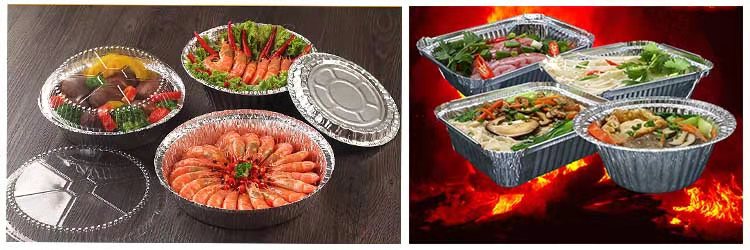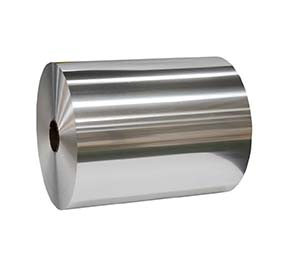Aluminum as a Preferred Packaging Material
Aluminum has developed into a material of preference for many producers when it comes to packaging for food and drink, medicines, cosmetics, and several other items. This adaptable metallic component has several benefits that make it appropriate for a variety of packaging applications. Aluminum packaging's appeal can be attributed in large part to its barrier qualities. Moisture, oxygen, light, and other environmental influences that can harm the packed items' quality and shelf life are effectively repelled by aluminum foil jumbo roll.Aluminum Foil: A Versatile Packaging Solution
Aluminum foil stands out among the numerous types of aluminum packaging as a functional and popular choice. Best aluminum foil is readily produced into sheets or can be tailored to fit certain packaging needs, such as containers of various sizes and shapes. It is the perfect material for a variety of package styles because of its malleability and flexibility, which make shaping and folding simple.Corrosion Resistance and Chemical Neutrality
The high corrosion resistance and chemical neutrality of 8011 aluminum foil containers are two of its main benefits. Because aluminum is naturally corrosion-resistant, the packaged goods are kept safe for the duration of their shelf life. Aluminum foil is also chemically inert, which means it doesn't react with the contents of the package, maintaining the flavor, quality, and security of the packaged items.Additionally, aluminum foil containers are strong yet lightweight, offering the best combination of convenience and security. They are appropriate for both hot and cold food packing since they can tolerate a range of temperatures. Aluminum's ability to conduct heat also makes it possible to distribute heat effectively, ensuring that food is cooked or warmed evenly.
Sustainability Considerations
Sustainability in packaging strategies has gained importance in recent years. Due to its capacity to be recycled, aluminum packaging supports these environmental objectives. Thickness aluminum foil is a desirable commodity in a circular economy because it can be recycled indefinitely without losing any of its original qualities. Compared to original manufacturing, recycling aluminum uses a great deal less energy, which lowers greenhouse gas emissions while also conserving resources.Additionally, the barrier qualities of aluminum packaging reduce food waste by preventing spoiling, prolonging shelf life, and eliminating the need for additives. Aluminum's low weight also contributes to the cost and energy savings of transportation.
Packaging now serves many more purposes than merely keeping goods safe. It is essential in today's fast-paced environment for influencing consumer impressions, boosting brand value, and offering ease. Due to its barrier qualities, flexibility, and capacity to be recycled, aluminum has emerged as the material of choice for packaging goods including food, drinks, medicines, cosmetics, and other items. It offers benefits in corrosion resistance, chemical neutrality, and sustainability whether it takes the form of aluminum foil or containers. Packaging will remain a crucial component of branding and product distinction as consumer tastes change, with aluminum providing as a dependable and versatile packaging material.
Aluminum Foil Containers: Meeting Demands in the Food Packaging Industry
The demand for aluminum foil containers has significantly increased within the food packaging sector. Flexible and rigid containers are the two categories into which they fall. The market for rigid aluminum foil containers, which includes trays, boxes, and bowls, has the biggest market share worldwide. They are a well-liked option for packaging a range of food products due to their durable design and adaptability.Aluminum Foil Containers in the Food Industry
Aluminum foil packaging is popular in the food business because of its remarkable qualities and versatility in use. The quality and freshness of packaged foods can be jeopardized by moisture, light, air, and other external components. These containers offer a dependable barrier against these contaminants. Aluminum foil containers make sure that consumers have a good experience by maintaining the flavor, texture, and nutritional content of food goods.Aluminum foil containers also make food preparation and consumption easier. They may be used in microwave ovens as well as for cooking and reheating meals. The aluminum foil's 30-micron thickness enables effective heat conduction, enabling uniform cooking and dispelling worries about safety risks. This characteristic, which offers customers more convenience and time-saving options, has significantly influenced the broad acceptance of aluminum foil containers in the food business.
Aluminum Foil Containers in the Pharmaceutical Industry
Aluminum foil containers are used by both the pharmaceutical business and the food industry. Due to its outstanding qualities, foil is universally acknowledged as the most preferable barrier material for pharmaceutical packaging. It offers a strong barrier against gases, light, and moisture, preserving the stability and integrity of medicinal items. Utilizing aluminum foil containers guarantees the secure transportation and storage of medicines, preventing deterioration and retaining their potency.Meeting Hygiene Standards and Environmental Protection Trends
Aluminum foil packaging complies with international environmental protection trends as well as national food safety norms. To guarantee the hygienic and safety of the packed food, these containers are carefully developed and produced. To avoid any food contamination or unfavorable consequences, the ingredients utilized in their creation are carefully chosen.The quick growth of aluminum foil lunch boxes in recent years has also been fueled by the growing attention being paid to environmental conservation on a worldwide scale. The usage of disposable containers has drawn criticism as people's awareness of sustainability and waste reduction increases. Lunch boxes made of aluminum foil provide an ecologically friendly substitute. They can be effectively recycled, which lessens the environmental impact of single-use packaging materials.
Due to its many benefits in terms of barrier protection, convenience, and sustainability, aluminum foil containers have become a crucial part of the food packaging business. Due to their adaptability and durability, rigid containers including trays, boxes, and bowls dominate the market. These containers fulfill strict cleanliness standards and guarantee the integrity of the packaged goods, making them frequently utilized in the food and pharmaceutical industries.
Aluminum foil containers provide consumers more convenience since they can survive microwave cooking. The invention and widespread use of aluminum foil lunch boxes are in line with the increasing emphasis on environmental preservation and waste reduction around the globe. Aluminum foil containers will be essential in achieving consumer expectations and industry standards as the need for eco-friendly packaging solutions rises.



.jpg)



